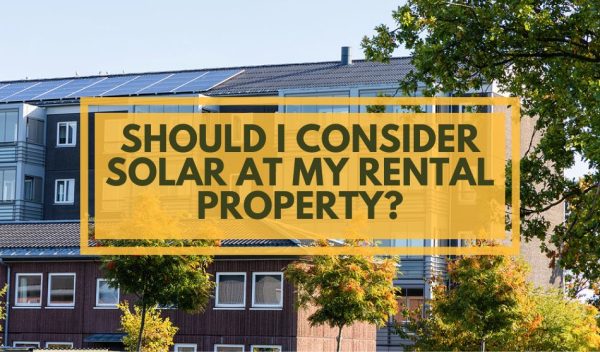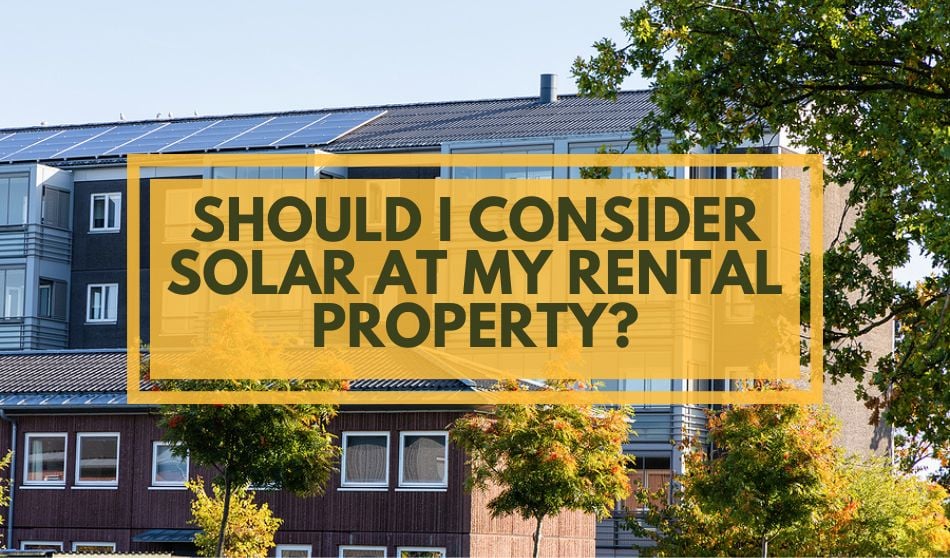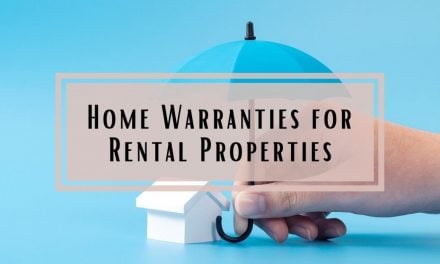
Over the last few years, many landlords have opted for more sustainable and eco-friendly energy sources. And there’s a good reason why: it has huge advantages.
With the rising popularity of renewable energy and the increasing focus on sustainability, the question of whether landlords should invest in solar power for their rental buildings has become more relevant than ever. And the answer is a no-brainer for some properties. Read on to find out why.
Why Solar is A Worthwhile Investment For Your Rental Property
If you’re on the fence about whether or not solar is a smart choice, here are some financial and environmental benefits that may convince you.
Reduced Electricity Costs
Solar energy has the potential to save you a lot of money on electricity bills. Because solar energy reduces reliance on traditional energy sources, energy costs will be lower. The extra padding you would have spent on bills can instead be reinvested to increase rental property profitability. To account for the upfront costs of installing solar, landlords and owners can charge additional rent and advertise that utilities are included.
Net Metering
With net metering, landlords can sell excess electricity generated by their solar panels back to the grid, effectively spinning their electric meter backward. As a result, energy bills are reduced since the excess energy is fed back into the grid and can be used to offset future energy consumption. By taking advantage of net metering, you can further enhance the financial viability of your solar installations while contributing to a more sustainable energy system.
Incentives and Tax Benefits
To promote solar energy adoption, many governments and utility companies offer incentives and tax credits. When landlords take advantage of these programs, they can reduce the upfront costs of installing solar panels, making the investment more affordable and attractive.
Increased Property Value
Landlords who invest in solar can potentially increase the resale value or rental income of their properties. Not only is a solar system often appealing to potential renters, but it can also set you up for a decent return on investment if you decide to sell down the line.
Renewable and Clean Energy
As a renewable energy source, solar power doesn’t produce harmful emissions of pollutants. By utilizing solar energy, landlords can significantly minimize their carbon footprint and contribute to a cleaner and more sustainable environment.
Green Marketing
With the growing demand for eco-friendly housing, landlords can differentiate their rental properties by advertising them as environmentally conscious and energy-efficient. Going green can attract tenants who prioritize sustainability, resulting in increased tenant satisfaction and prolonged occupancy rates.
Depreciation Expense
When you invest in a high-quality solar system, it typically comes with an extended warranty period ranging from 20 to 25 years. During this time, you can take advantage of the depreciation value method to claim a 10% decline in the value of your solar system annually. As a result, the depreciation expense helps offset the tax payable on the additional rental income generated by having solar panels installed on your property. And, you’ll also make a big profit because you’ll be left with an extra ten years of savings.
LEED Certification
By investing in solar, you also demonstrate your commitment to sustainable energy and building practices. If you choose to go green, your property may qualify for a LEED certification, a symbol that globally recognizes sustainability achievement.
Things To Consider Before Switching To Solar
Long-Term Investment
If you’re planning on Investing in solar, it’s important to recognize that it is a long-term commitment. As a landlord, you should carefully assess the payback period and the overall return on investment (ROI). Factors such as the property’s location, energy consumption, and local solar incentives can influence the financial viability of solar installations.
Property Suitability
Solar energy generation requires ample sunlight exposure. You’ll need to evaluate whether your rental property has suitable roof space or an open area that can accommodate solar panels without being obstructed by trees, neighboring buildings, or other physical barriers.
Assess the Structural Integrity of the Property
Beyond evaluating whether or not solar would be suitable for your property, you’ll need to double-check its structural integrity, identifying if any repairs or upgrades are necessary before installation. When you do, factor in the potential impact of any future roof maintenance and repairs.
Maintenance and Monitoring
While solar panels are relatively low maintenance, regular inspections and cleaning may be required to ensure optimal performance. Before making the decision to switch to solar, think about the costs and responsibilities associated with panel maintenance or hiring professional services to manage and monitor the system effectively.
Tenant Involvement
Consulting with your tenants to gauge their interest and willingness to participate shows that you are committed to open communication, transparency, and care about managing their expectations. While some tenants may appreciate the environmental and cost-saving benefits, others may have concerns or preferences that need to be considered.
Tips For Getting Started
Once you’ve made the choice to go solar:
Be Aware of Your Initial Investment Costs
Evaluate the upfront expenses associated with installing solar panels. This includes the cost of equipment, permits, installation, and potential modifications to the property. Determining the payback period by comparing the upfront costs with the projected savings in energy bills will give you a better idea of how much everything will cost before you begin.
Explore Financing Options
Often, loans, grants, and incentives, can offset upfront costs. Research local, state, and federal programs that offer financial support or tax incentives for solar installations to compare your different options. Assess the impact of these options on the overall return on investment.
Seek Professional Guidance
Solar installation companies and consultants can evaluate your property’s solar potential and provide expert advice. It’s best to obtain multiple quotes from reputable solar installers to compare costs, warranties, and services offered. Ask for references and check reviews to ensure you’re working with experienced and reliable professionals.
Obtain Permits and Approvals
Familiarize yourself with the local regulations, building codes, and permit requirements for solar installations in your area. You’ll also need to ensure that you have all the required approvals before proceeding with the installation process.
Deciding If Solar Is Right For Your Rental Property
Investing in solar can be a wise and rewarding decision that aligns with both your financial goals and sustainability values. However, like any other upgrade you’d make to your rental property, you need to decide if it’s right for you.
With so many benefits, it’s easy to understand how and why more and more landlords are getting on board. So if you’re debating whether or not going solar is a smart choice, remember that its advantages make it a sound financial decision, can improve your bottom line, and also helps you contribute to a greener future.






